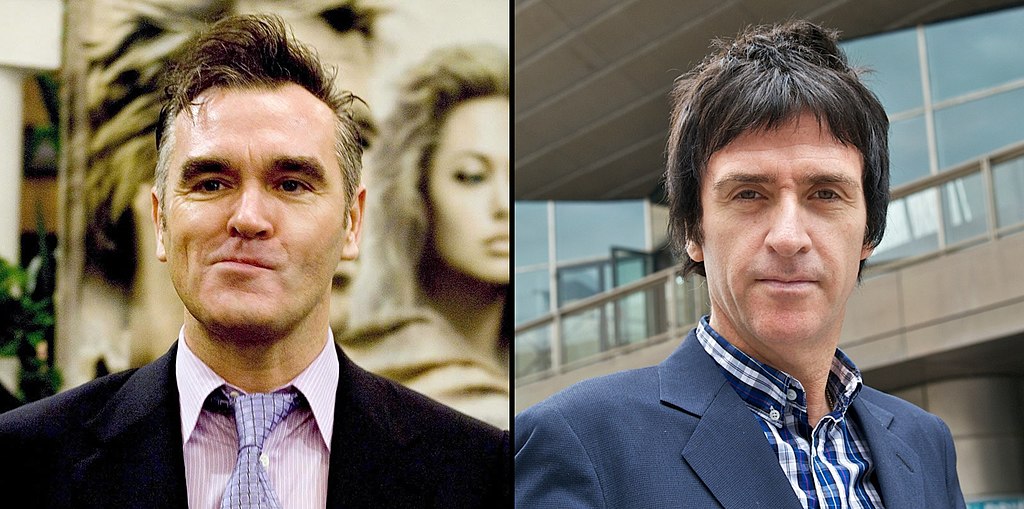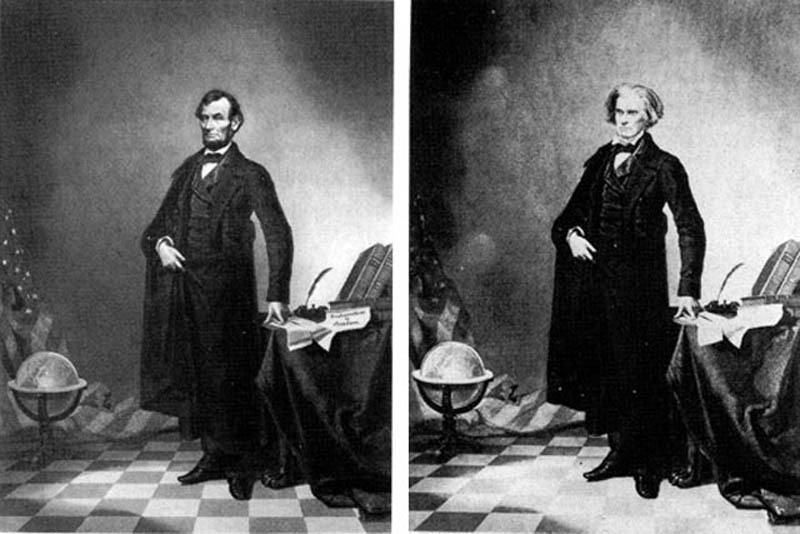
The French phrase Mort ici, j’en ai marre translates as “Dead here, I’m fed up” and sounds like “Morrissey, Johnny Marr.”
(Thanks, Ian.)

The French phrase Mort ici, j’en ai marre translates as “Dead here, I’m fed up” and sounds like “Morrissey, Johnny Marr.”
(Thanks, Ian.)

In 1761 a French schooner was shipwrecked in the Indian Ocean, leaving more than 200 people stranded on a tiny island. The crew departed in a makeshift boat, leaving 60 Malagasy slaves to fend for themselves and wait for rescue. In this week’s episode of the Futility Closet podcast we’ll tell the story of the Tromelin Island castaways, which one observer calls “arguably the most extraordinary story of survival ever documented.”
We’ll also admire some hardworking cats and puzzle over a racer’s death.

This iconic image of Abraham Lincoln is not authentic — Lincoln never posed in this “heroic” style during his lifetime, so after his death an enterprising artist added Abe’s head to a portrait of South Carolina Democrat John C. Calhoun.
Both men would have been aghast. “Many in the South once believed that slavery was a moral and political evil,” Calhoun once wrote. “That folly and delusion are gone. We see it now in its true light, and regard it as the most safe and stable basis for free institutions in the world.”
A ring that encircles a length of chain will be caught in a loop if it tumbles during its fall. By Newton’s Third Law, when the turning ring strikes the chain it transfers momentum to the loop at the end — which causes it to rise and swallow the ring.

“The happiness of London is not to be conceived but by those who have been in it. I will venture to say, there is more learning and science within the circumference of ten miles from where we now sit, than in all the rest of the kingdom.” — Samuel Johnson
“I believe the parallelogram between Oxford Street, Piccadilly, Regent Street and Hyde Park encloses more intelligence and human ability, to say nothing of wealth and beauty, than the world has ever collected in such a space before.” — Sydney Smith
I just ran across this in an old Mathematical Gazette: R.H. Macmillan of Buckinghamshire shared a tidy expression for the area of a triangle whose vertices have coordinates (x1, y1), (x2, y2), and (x3, y3):
The sign is positive if the numbering is counterclockwise and negative if it’s clockwise.
“The expression is readily derived geometrically (using only the fact that the sum of the areas on each side of the diagonal of a rectangle must be equal) and so provides an interesting elementary exercise.”
(R.H. Macmillan, “Area of a Triangle,” Mathematical Gazette 77:478 (March 1993), 88.)
“Talent is luck, what’s important in life is courage.” — Woody Allen

Darwin’s colleague Guillaume Duchenne first noticed the difference between smiles that are caused by enjoyment and those that aren’t. Both feature raised lip corners, but a genuine smile also activates the muscles around the eyes (lateral portions of the orbicularis oculi), causing “crow’s feet.”
This “Duchenne marker” is remarkably revealing. By observing it, researchers can predict whether an infant is being approached by its mother or by a stranger, and whether the infant’s mother is smiling at all. It also predicts when people who have lost their airline baggage began to feel less distress, how much a person enjoys being smiled at, whether a child has won or lost a game, and whether a person enjoys certain jokes and cartoons.
Beyond this, in clinical settings Duchenne smiles can predict a wide range of behaviors, including “whether a person will cope successfully with the death of his or her romantic partner; whether a person is an abusive caregiver; and whether a person is depressed, schizophrenic, recovering from an illness in general, or likely to respond successfully to psychotherapy.”
(From Mark G. Frank, “Thoughts, Feelings and Deception,” in Brooke Harrington, ed., Deception, 2009.)
There was an old fellow called Hugger,
Who was captain and mate of a fishing smack;
When a yacht crossed his bows,
He said: “My word!
It’s an awfully good thing it wasn’t a liner.”
— Arnold Hyde
An American girl in Versailles
Said: “I feel so ashamed I could weep.
Ten days I’ve been here
And not gone to the Louvre.”
“Never mind,” said someone, “it’s possibly only the hard water.”
— Quoted in Anthony Burgess’ But Do Blondes Prefer Gentlemen?
There was a young lady of Ealing
Who walked up and down on the window;
And there, for a while,
To vary her technique,
She practiced strathspeying and hornpipes.
— Allen M. Laing
There was a young lady called Dawes,
Went out to a dance without gloves;
Her ma said: “Amelia!
Should anyone dance with you,
He’ll take you for one of them actresses.”
— Anonymous
In the early 1900s, blue tits and robins had easy access to cream from the tops of open milk bottles left on humans’ doorsteps. After World War I, the humans began to seal the bottle tops with aluminum foil. But remarkably, by the 1950s the entire blue tit population of the United Kingdom had learned pierce the foil to reach the cream, while the robins hadn’t.
The difference lay in cultural transmission: A blue tit can learn a new behavior by observing another bird performing it. Robins generally can’t do this — while an individual robin might learn to pierce the foil, it has no way to pass on this discovery to other robins. Young blue tits are reared in flocks in which they can observe one another, which is an advantage; robins are territorial and have fewer such opportunities.